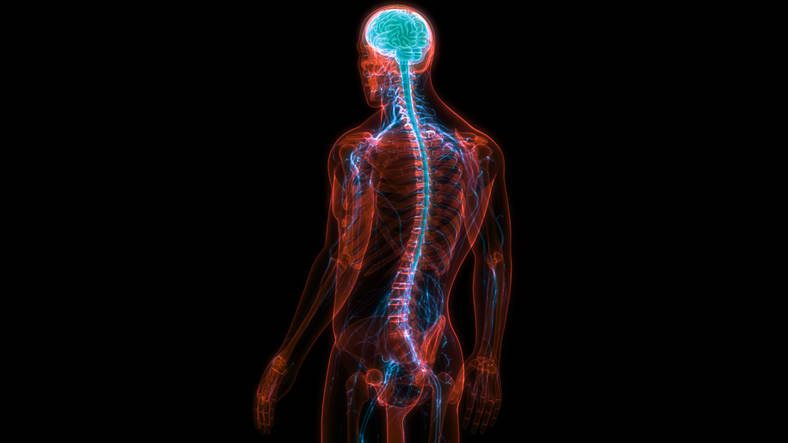Improve your health, improve your brain

[5 MIN READ]
In this article:
- Brain health refers to how well your brain functions across several areas, including your ability to think, move, feel and experience the world around you.
- A recently released study shows making healthy lifestyle choices protects your brain health and reduces your risk of dementia by up to 40%.
- A neuropsychologist at Swedish’s Center for Health Aging explains the study’s results and outlines strategies to keep your brain working at maximum capacity.
- Be sure to watch the short video at the end of this blog to learn more.
Improve your health, improve your brain
It's pretty common knowledge that making healthy lifestyle choices plays a significant role in your physical health. But did you know those same choices can also affect your brain health?
A new study in The Lancet, a leading medical journal, shows that healthy behaviors that prevent Type 2 diabetes, cancer and heart disease also protect brain health and reduce the risk of dementia by up to 40%.
Brain health refers to your brain’s ability to function across several areas, including:
- Cognitive function – how well you learn, think and remember.
- Emotional function – how well you perceive and respond to both positive and negative emotions.
- Motor function – how well you can balance and control your body’s movement.
- Sensory function – how well you taste, hear, see and detect odors.
- Tactile function – how well you feel and react to sensations such as pain, pressure and temperature.
Your brain health can be affected by:
- Age-related changes to your brain
- Depression
- Neurological disorders such as Alzheimer’s and other dementias
- Stroke
- Substance use disorder or addiction
- Traumatic brain injury
We talked to Joel Peterman, Ph.D., a neuropsychologist at the Center for Healthy Aging at the Swedish Cherry Hill Campus, about brain health and how the report’s findings can help you reduce your risk of dementia. Here’s what you need to know.
The command center for your body
“Your brain is the command center telling everything else what it needs to do,” Dr. Peterman says. “It coordinates essential activities, ensures your overall well-being and determines your ability to function. Brain health is what we can do to optimize our brain’s ability to do all it needs to do.
Although we often associate diminishing brain health with older adulthood, it’s important to remember that protecting your brain health is a lifelong effort.
“We often focus on brain health with older adulthood,” Dr. Peterman says. “The thing is, we can be doing things across our lifespan to significantly reduce the impact of cognitive decline.”
Protect your heart
Your brain may be your body’s command center, but your heart also plays a leading role.
“Heart health is deeply tied to brain health," says Dr. Peterman. “Our brain, for its relative size, uses an incredible amount of oxygen and nutrients to keep itself running. We want to ensure that the delivery system — your cardiovascular system — is as healthy as possible to bring needed oxygen and nutrients to our brain.”
Manage hypertension
Maintaining healthy blood pressure is another significant factor for keeping your brain working at peak performance levels.
“Manage your hypertension and control your high blood pressure,” Dr. Peterman says. “If you have high blood pressure, this can certainly be done with medication. But it can also be helped by lifestyle changes, such as getting consistent cardiovascular aerobic activity.”
Forge lasting connections
Loneliness and social isolation can cause considerable damage to brain health. Staying connected to family, friends and your community is one way to stay alert and aware.
“Chronic loneliness is a pretty high predictor of potential changes and declines in cognitive function,” Dr. Peterman says. “We’re a social species. Some people are more social than others, but we all need to feel that connection with others.”
Maintaining social ties may be more difficult as we age, but the effort is worth the rewards.
“As we get older, our social ties can start to fray,” Dr. Peterman says. “That can be related to the loss of friends or loved ones, but many people also withdraw from activity when they retire. A lot of us find work in an area where we socialize. It’s not that we’re best friends with our coworkers, but there’s constant engagement with others. For many of us, once we retire, our social world really shrinks.”
Pursuing interests and hobbies isn’t just a way to occupy your time. It’s an effective way to keep your mind sharp and your brain active.
“If there’s a hobby that you loved but were not able to do while you were working because there are only so many hours in a day, re-engage in that hobby and see if there’s a community to join that’s part of that, as well,” says Dr. Peterman. “There are these opportunities out there to make connections. It’s incumbent upon us to find them.”
Limit alcohol consumption
Alcohol consumption is associated with brain health. The recommended amount is no more than one drink a day for women and no more than two drinks a day for men, according to the Centers for Disease Control and Prevention. However, as we get older, alcohol is going to impact us differently, and some people may need to modify their alcohol use accordingly, says Dr. Peterman.
“One of the issues with alcohol is that people will have a nightcap or a cocktail hour, and they find it helpful for falling asleep,” he says. “But alcohol actually disrupts the sleep cycle. We consolidate our memory during sleep, so we need to get as restorative sleep as possible. Alcohol can prevent that from happening.”
Don’t get kidnapped mentally
Mental health issues such as depression or anxiety can affect your brain health and interfere with your cognitive well-being.
“I view depression and anxiety as mental kidnappers,” Dr. Peterman says. “Anxiety has us borrowing trouble from the future. I can ruminate on a future problem until the cows come home, but I'm not going to solve it until it actually happens. With depression, we’re finding ourselves looking in the rearview mirror of our lives saying, ‘I wish I had done this. If only. I should.’ That’s never good for our brain health.”
Dr. Peterman continues: “Negative self-talk, sadness, withdrawal from activities. These sorts of things will absolutely affect brain health. If I’m experiencing depression, things that I previously found enjoyable don’t really appeal to me anymore. So now I’m doing less. Now I’m seeing fewer people, and, as you know, that’s bad for brain health.”
Choose a healthy diet
Good nutrition is a crucial factor in good health. Eating a balanced diet is one of the best ways to protect your health overall — not just your brain. Not sure where to start? Several eating plans are proven to improve health and reduce your risk of illness.
“Oftentimes people talk about the Mediterranean-style diet,” Dr. Peterman says. “There’s tons of research to show that those who follow a Mediterranean-style diet have reduced dementia risk. In addition, there’s a diet that focuses mainly on brain health called the MIND diet, which includes the Mediterranean-style diet and the DASH diet for hypertension control. We’re having our leafy greens, complex carbohydrates and lean proteins. Still, we’re also trying to control the amount of sodium we’re consuming in any of our food. It all makes a difference.”
Manage stress
“Chronic stress can certainly impact memory function,” says Dr. Peterman. “The more stress we take on, the more likely we will notice additional forgetfulness.”
Stress reduction techniques such as mindfulness, exercise and conscious relaxation can help you manage your stress effectively.
Address hearing loss
Hearing loss can isolate you from others and prevent you from interacting with the people around you.
“It's essential to address hearing loss,” Dr. Peterman says. “Hearing loss is one of the modifiable factors that’s associated with an increased risk of dementia. With hearing loss, you’re getting less sensory stimulation, and that can take a toll on your brain health. Taking proactive steps to evaluate your hearing and address any issues can help reduce your risk of cognitive decline.”
Watch this short video and learn more
Dr. Joel Peterman, a neuropsychologist at the Providence Swedish Center for Healthy Aging, visitied KING 5's New Day Northwest for a discussion about Alzheimer's disease, dementia and how we can maintain optimal brain health.
Learn more and find a physician or advanced practice clinician (APC)
Swedish’s Center for Healthy Aging offers comprehensive, compassionate care focused on enhancing your quality of life throughout all its stages. Our multidisciplinary team works together to create holistic, evidence-based care plans that include programs and services designed to support brain health as you age.
Whether you require an in-person visit or want to consult a doctor virtually, you have options. Contact Swedish Primary Care to schedule an appointment with a primary care provider. You can also connect virtually with your provider to review your symptoms, provide instruction and follow up as needed. And, with Swedish ExpressCare Virtual, you can receive treatment in minutes for common conditions such as colds, flu, urinary tract infections and more. You can use our provider directory to find a specialist or primary care physician near you.
Information for patients and visitors
Related resources
Innovative program empowers women to strengthen brain health
Dementia isn’t a certainty: Learn how to modify your risk
The FDA has approved a game-changing drug for Alzheimer's disease. What should you know?
This information is not intended as a substitute for professional medical care. Always follow your health care professional's instructions.


